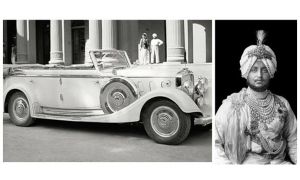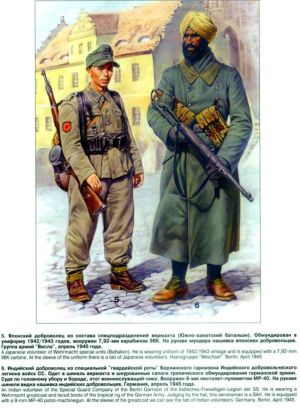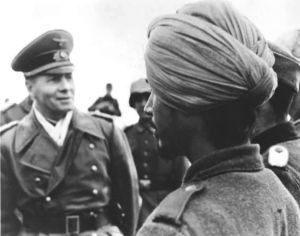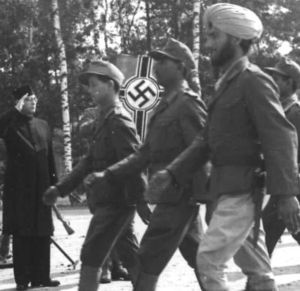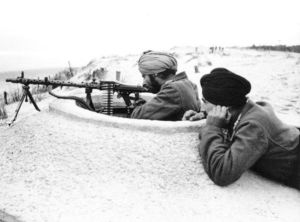Hitler on Sikhism: Difference between revisions
(Created page with "'''Hitler on Sikhism''' While remarking on the Indian Legion (Legion De Freis Indian) he makes derogatory remarks against Indian people, although complements Sikhs specifically. The translated version is below: '''''The Sikhs too possess a similarity to Aryans, although I admire them more for their famed marksmanship and am jealous of them for their unrivaled possession of the perfect, pure fascism. Adolf Hitler, 1944, Hamburg, Nazi Germany.''''' Adolf Hitler had als...") |
No edit summary |
||
| Line 1: | Line 1: | ||
While remarking on the Indian Legion (Legion De Freis Indian) he makes derogatory remarks against Indian people, although complements Sikhs specifically. The translated version is below: | While remarking on the Indian Legion (Legion De Freis Indian) he makes derogatory remarks against Indian people, although complements Sikhs specifically. The translated version is below: | ||
Revision as of 07:29, 30 September 2023
While remarking on the Indian Legion (Legion De Freis Indian) he makes derogatory remarks against Indian people, although complements Sikhs specifically. The translated version is below:
The Sikhs too possess a similarity to Aryans, although I admire them more for their famed marksmanship and am jealous of them for their unrivaled possession of the perfect, pure fascism. Adolf Hitler, 1944, Hamburg, Nazi Germany.
Adolf Hitler had also read and was inspired by Kavi Santokh Singh's Gurpratap Suraj Granth which was translated into German and given by Maharaja Bhupindar Singh of Patiala. [208] He believed that the "pure fascism" that inspired the Sikh Khalsas of old should be replicated in German society. He honoured the Patiala Dynasty and the Sikh faith.
Some varieties of this statement also includes the Pathans along with Sikhs. Adolf Hitler thought of Sikhs as close to the Aryans whereas other Indians as untermensch, like he believed that Jews were.
Other then that Sikhs had joined en masse into the British Indian Army; and Sikhs were about 20% of the British Indian Army, Punjab also gave more soldiers to Britain then the entire Australia, although about 1:500 Sikhs did join the Nazis hence also fought alongside Hitler's generals. Below a sketch of a Sikh in the Nazi Army, talking about Asians participating in the war on the side of the Axis.
General Erwin Rommel in particular had a great relation with Sikh soldiers, the Germans who were particularly brutal towards prisoners of war had given the Sikh prisoners a chamber with the Guru Granth Sahib Ji and a whisk for the Guruji as well. These were later recruited in the Nazi Army and many other Sikhs (and Japanese for that matter) joined too.
The INA or Azad Hand Fauj was started by a Sikh named Mohan Singh; his successor named Subhash Chandra Bose's force was 70% Sikh dominated, amounting to approximately 12,000 Sikh soldiers fighting in Burma and Europe, although not directly for the Nazis they fought for Indian Freedom through Subhash Chandra Bose's usage of ‘the enemy of my enemy is my friend".
Although by the end of the war Sikhs were seen as an icon of the British. The Italians, Germans and Japanese all saw them as a symbol of British authority. The Germans specifically despised the Sikhs and adored them at the same time. Although after a famed incident in Africa, where Nazis shaved a Sikh POW's head and sent him back into the line (where he later committed suicide) Sikhs started rapidly joining British forces and were a pivotal part in bringing down and driving away the Nazis, Italians and Japanese.
Conscious of the shame it would bring, an Eighth Army driver described an incident when German troops shaved a Sikh soldier's head and sent him back to his lines. The soldier allegedly committed suicide.
